 Passed at the end of the Civil War, the 14th Amendment declared that "no State can deprive any person of life, liberty or property without due process of law". Intended primarily to safeguard the rights of newly freed slaves, it didn't take long for lawyers acting on behalf of corporations to hijack this law. The Supreme Court responded to their lobbying by according the rights of a person to a corporation. By way of example: "Imperial Steel Incorporated has many of the legal rights of a person. It can buy and sell property. It can borrow money. It can sue in court and be sued. It carries on a business ... It is a member of our society."
Passed at the end of the Civil War, the 14th Amendment declared that "no State can deprive any person of life, liberty or property without due process of law". Intended primarily to safeguard the rights of newly freed slaves, it didn't take long for lawyers acting on behalf of corporations to hijack this law. The Supreme Court responded to their lobbying by according the rights of a person to a corporation. By way of example: "Imperial Steel Incorporated has many of the legal rights of a person. It can buy and sell property. It can borrow money. It can sue in court and be sued. It carries on a business ... It is a member of our society."Mark Achbar and Jennifer Abbott's documentary, an adaptation of the acclaimed book by Joel Bakan, takes this concept as its starting point and spends two and a half hours relentlessly pursuing corporationism and demanding that it be held accountable for its effect on society, its effect on overseas economies and exploitation of sweatshop workers, its effect on the environment, its relationships with despotic regimes and its cynical manipulation of the consumer through branding, marketing and targetting children via heavy saturation of advertising campaigns.
Since the corporation has the legal rights of a person, the documentary asks, what personality traits does it exhibit?
Those, the answer reveals, of a psychopath.
'The Corporation' is built around interviews, illustrated with archive footage, with CEOs, traders, economists, activists, environmentalists and Michael Moore. A film of this ilk would have been incomplete without a contribution from Michael Moore. If Moore is, as ever, on the side of the angels, then he is in good company: philosopher and cognitive scientist Noam Chomsky, environmental activist and eco feminist Vandana Shiva, and Naomi Klein, author of the seminal 'No Logo', are all on hand to offer penetrating insights and/or alternatives to the grasping, dollar-driven bottom-line greed that defines the corporate mindset.
If these are the film's heroes, it's no surprise that the villains are the pocket-layering, conscience-free, money-grubbers whose souls are in hock to big business and who seem untroubled by morality or social norms.
Here's Lucy Hughes, VP of Initiative Media, a company who wants to brainwash your children and make them brand-loyal consumers for the rest of their lives (Goebbels would love to date this girl): "You can manipulate consumers into wanting and therefore buying your product. It's a game … [Children] are tomorrow's adult consumers … build that relationship with them when they're younger and you've got them as an adult … Is it ethical? I don't know. But our role at Initiative is to move products. And if we know you move products with a certain creative execution placed in a certain type of media vehicle, then we've done our job."
(Luce, babe, quick answer to your question: no it isn't fucking ethical.)
Here's Michael Walker of the Fraser Institute, a man who thinks nature should be owned. But not just by anyone, oh no. "It sounds outlandish to say we want to have the whole universe, the whole of the earth owned. That doesn't mean to say I want Joe Bloggs owning this square foot. But it means the interests that are involved in [for instance a] stream are owned by some group or by some people that have an interest in maintaining it."
And here's Carlton Brown, perhaps the most venal of all the interviewees. He's a commodities trader who has fond memories of 9/11. I'm going to quote him at length, just to emphasise the sheer awfulness of the sentiment he voices:
"I've got to be honest with you, when the September 11th situation happened, and I must say - and I wanna say this because I don't want to take it lightly, it's not a light situation - it was a devastating act. It was really a bad thing. It was one of the worst things I've seen in my lifetime, you know. But, I will tell you and every trader will tell you, who was not in that building and who was buying gold and who owned gold and silver, that when it happened the first thing you thought about was, 'How much is gold up?' The first thing that came to mind was, 'My God, gold must be exploding'. Fortunately, for us, all our clients were in gold. So when it went up they all doubled their money. Everybody doubled their money. It was a blessing in disguise. Devastating, crushing, heart shattering, but on the financial sense, for my clients that were in the market, they all made money ... When the USA bombed Iraq back in 1991, the price of oil went from $13 to £40 a barrel. Now, we couldn't wait for the bombs to start raining down on Saddam Hussein ... There was not a broker that I know of that wasn't excited about that ... In devastation there is opportunity."
Does this make you angry? Speaking for myself, every time I watch the film I have to restrain myself from hurling something at the screen when this fuckwit comes on.
There's worse to come: American corporationism's relationship with Nazi Germany. The Coca-Cola Company, patriotically advertising their product using the images of US serviceman, made sure they maintained European profits by creating Fanta, advertised with pictures of Aryan madchen. Despicable, right? Well, let's put IBM in the dock: we're talking despicable plus VAT.
The complex, pre-computer punch-card system by which the Third Reich operated the railway system serving the death camps, not mention administrating what actually went on in the camps themselves, were built by IBM, the machines (even those on-site at the camps) were serviced by IBM technicians once a month, and the millions of punch-cards themselves were printed by IBM. In its defence, IBM has stated that all of this was run through a German subsidiary company and they had no control over it. Documents are produced for the camera, however, that demonstrate the contract was between the Third Reich and IBM in America.
Manipulation of children, ownership of nature, profiteering from terrorism, complicity in the Holocaust. This is big business. This is the corporation. Fucking frightening, isn't it?
And if it weren’t for the contribution of one man, a hero within the system, Achbar and Abbott's film would be almost unbearably nihilistic in its depiction of its subject. The man in question is Ray Anderson, CEO of Interface. What he has to say is worth quoting in full:
"For 21 years I never gave a thought to what we were taking from the Earth or doing to the Earth in the making of our products. And then in the summer of 1994 we began to hear questions from our customers we had never heard before: 'What's your Company doing for the environment?' And we didn't have answers. The real answer was not very much. And it really disturbed many of our people, not me so much as them, and a group in our research department decided to convene a taskforce and bring people from our businesses around the world to come together to assess our company's worldwide environment position to begin to frame answers for those customers. They asked me if I would come and speak to that group and give them a kick-off speech and launch this new task force with an environmental vision, and I didn't have an environmental position, and I did not want to make that speech. And sort of the propitious moment, this book landed on my desk. It was Paul Hawkins' book, 'The Ecology of Commerce' and I began to read [it], really desperate for inspiration, and very quickly into that book I found the phrase, "The Death of Birth". It was E.O. Wilson's expression for species extinction, "The Death of Birth," and it was a point of a spear into my chest, and I read on, and the spear went deeper, and it became an epiphanal experience, a total change of mindset for myself and a change of paradigm. Can any product be made sustainably? Well, not any and every product. Can you make landmines sustainably? Well, I don't think so. There's a more fundamental question than that about landmines. Some products ought not to be made at all. Unless we can make carpets sustainably, you know, perhaps we don't have a place in a sustainable world, but neither does anybody else, making products unsustainably. One day early in this journey it dawned on me that the way I'd been running Interface is the way of the plunderer; plundering something that's not mine, something that belongs to every creature on earth. And I said to myself, 'The day must come when this is illegal, when plundering is not allowed. It must come.' I said to myself, 'My goodness, some day people like me will end up in jail'."
Anderson is now fully committed to sustainability. Since 1996, he has reduced Interface's carbon footprint by a third, with the stated intent of the company being fully sustainable by 2020.
His example desperately needs to be followed.
More information and resources are available at 'The Corporation's website.
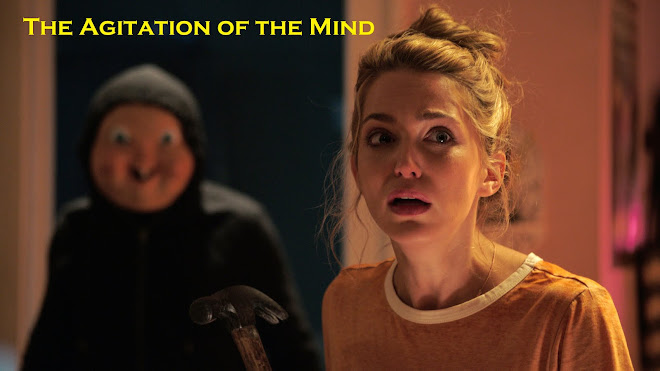
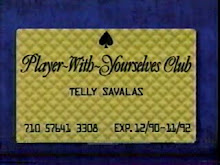
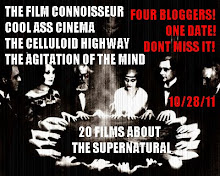
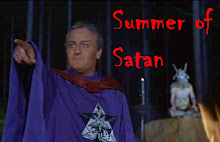
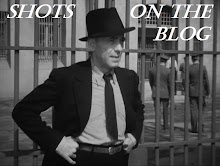

















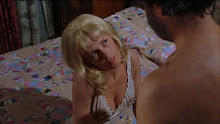
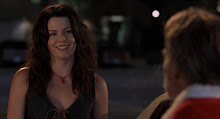








No comments:
Post a Comment